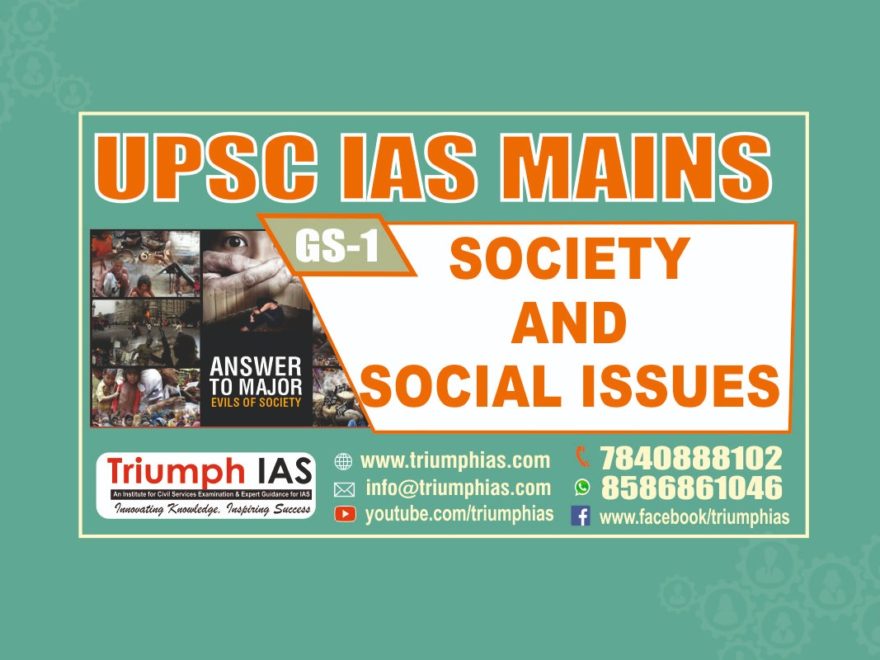MENSTRUAL HYGIENE DAY: DISPELLING STIGMA NEED GOVT INTERVENTION
Relevance:
- Sociology: Women Reproductive health
- S paper I: Society and social issues: women issues
- S paper II: Governance

Context
The Rajasthan government allocated Rs 200 crore to Free Medicine Scheme to facilitate dispensation of free sanitary napkins.
The novel coronavirus disease (COVID-19) pandemic has hampered access to free sanitary napkins and other crucial information to manage menstrual health of adolscent girls and women across the country.
The Menstrual Hygiene Day, observed globally on May 28, is thereby gains importance for the need to break taboos around menstruation.
The National Family Health Survey (NFHS-4, 2015-16) noted that half the rural women did not use hygienic sanitary products, and girls were often inadequately educated on puberty and menstrual health.
The NFHS-4 reported in 2015-16 that women with 12 or more years of schooling were over four times more likely to use hygienic methods than women with no schooling (81 per cent versus 20 per cent).
- A 2016 landscape analysis titled Menstrual Health in Indiaalso observed that of nearly 355 million girls in India who were of age, 71 per cent had no idea about menstruation before their first period.
Poor menstrual health management also leads to other health problems related to fertility, physical and mental health.
The novel coronavirus disease (COVID-19) pandemic has hit the menstrual health of girls and women in India by cutting off access to free sanitary napkins and information that helped manage their period.
- The Menstrual Hygiene Day, observed globally on May 28, is thereby gains importance for the need to break taboos around menstruation.
- The National Family Health Survey (NFHS-4, 2015-16) noted that half the rural women did not use hygienic sanitary products, and girls were often inadequately educated on puberty and menstrual health, said Amita Kashyap, MD-PSM (Senior Professor, SMS Medical College).
- Many drop out of school when they begin menstruating. Normalising conversations around menstruation is as critical as the dispensation of hygiene products to break the chain of taboo, misinformation, superstition and ignorance around the subject.
A Rapid Assessment Study conducted by the Population Foundation of India in Rajasthan, Uttar Pradesh and Bihar in April-May 2020 had also revealed that more than half the young girls interviewed could not meet their needs for sanitary napkins.
The high cost of sanitary products, the lack of proximity to pharmacies and ill-equipped health clinics contribute to making menstrual hygiene inaccessible in several parts of rural Rajasthan.
- Menstrual health has a major impact on young girls’ lives. Ensuring they receive reliable information from parents or teachers about menstruation before their first period encourages healthy habits and dispels stigma and fears.
- However, the lack of access to online classes due to the digital divide in rural India has led to a disruption in girls’ education.
The NFHS-4 reported in 2015-16 that women with 12 or more years of schooling were over four times more likely to use hygienic methods than women with no schooling (81 per cent versus 20 per cent).
A 2016 landscape analysis titled Menstrual Health in India also observed that of nearly 355 million girls in India who were of age, 71 per cent had no idea about menstruation before their first period.
Poor menstrual health management also leads to other health problems related to fertility, physical and mental health.
As many as 1.2 crore women in the age group of 15-45 years would benefit from the scheme in the state.
Such initiatives depict that the state government is sensitive towards recognising the issues and needs related to menstrual health. These steps will go a long way in protecting women and girls from developing menstrual hygiene-related diseases such as fungal, urinary tract, and reproductive tract infections.

